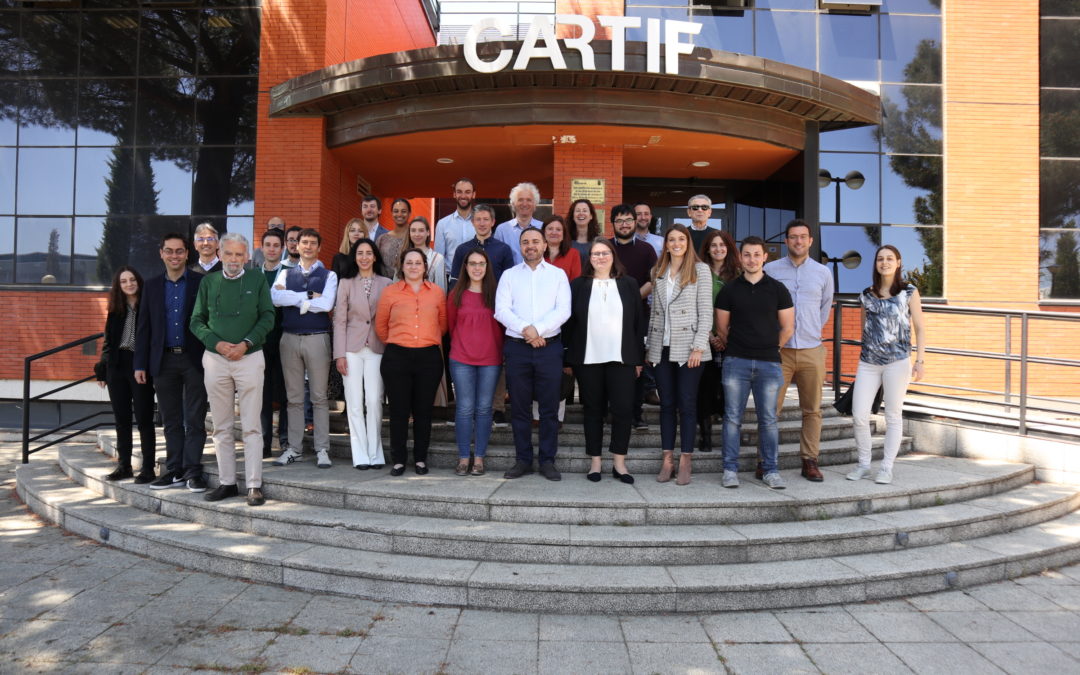The CO2SMOS project, with the technical and financial coordination of CARTIF, is one year old and to commemorate it, all the partners of the consortium have gathered in person at the facilities of the technology centre in Boecillo (Valladolid, Spain) to hold their regular M12 meeting and the General Assembly.
During the work session, which took place on May 04th and 05th, the results obtained during the last 6 months were reviewed and the roadmap for the next period was planned– Thanks to the return to face-to-face events, in addition to combating technical issues of the day, the partners have been able to discover the CARTIF facilities and the to know in depth the Biotechonoly and Sustainable Chemistry laboratories.
The consortium closed this regular session on a high note with good expectations for the future in the areas of CCUS, CO2 utilisation, biopolymers, renewable chemistry and others opportunities in the research of the chemistry industry.
The CO2SMOS project, included in the European framework Horizon 2020, was created to provide solutions for the transformation of biogenic CO2 emissions (e.g. fermentation processes) to achieve different bioproducts: renewable chemical processes, high performace polymers and biodegradable materials.
The project consortium, led by CARTIF, is composed of a large team of 15 international partners with a wide experience and interdisciplinary background in different fields such as technology (CARTIF, CSIC, FUNDITEC, SINTEF, University of Twente and University of Amsterdam), industrial end-users (Avantium, Novamont and Nadir), interdisciplinary research organisations (CERTH and RWTH Aachen University), technology consultancy companies, service providers and service providers, to industrial end-users (Avantium, Novamont and Nadir), interdisciplinary research organisations (CERTH and RWTH Aachen University), technology consulting companies and engineering and service providers (RINA), waste management companies (HERA Group), as well as pilot plant and scale-up facilities (Bio.based European Pilot Plant) and the leading European platform and association in the field of CO2 capture and utilisation technologies (CO2 Value Europe).
The consortium will continue to work towars opening new markets and business models for sustainable industries based on CO2-derived chemicals, contributing to diversify the product/process portfolio and at the same time to leapfrog the sustainability of emerging sectors (BBIS) and their role as a climate change-mitigating agent.

